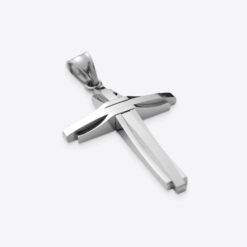Addiction’s grip can be relentless, shattering lives and tearing apart families, and that’s why steps to fighting addiction are useful. But even in the darkest depths, there’s hope by the power of prayer.
In this work, we will explore how prayer can become a vital weapon in the fight for recovery, offering strength, comfort, and support on the journey back to wholeness.
Understanding Addiction and the Steps to Fighting Addiction
Before embarking on your spiritual path, acknowledge the enemy you face. Addiction, a complex brain disorder characterized by compulsive behavior, wreaks havoc on health, relationships, and aspirations.
Recognizing its power is crucial, paving the way for genuine change.
The Bible says:
For our struggle is not against flesh and blood [contending only with physical opponents], but against the rulers, against the powers, against the world forces of this [present] darkness, against the spiritual forces of wickedness in the heavenly (supernatural) places.
– Ephesians 6:12 (AMP)
The Prayer Steps:
- Admission of Powerlessness: Surrender to the truth that you alone cannot conquer addiction. Seek a higher power, a force greater than yourself, God, to provide guidance and strength.
- Seeking Help: Turn to God, a spiritual guide, or a faith community for support and understanding. Share your struggles and seek the wisdom that can help your recovery.
- Moral Inventory: Reflect on your actions and their consequences. Acknowledge the wrongs you’ve committed, to yourself and others, paving the way for forgiveness and healing.
- Atonement and Forgiveness: Seek forgiveness from those you’ve harmed, and ask for the courage to make amends. Remember forgiveness, both given and received, is a cornerstone of recovery.
- Character Defect Removal: Pray for the strength to identify and overcome negative traits that fuel your addiction. Ask for guidance to cultivate virtues like honesty, humility, and self-love.
- Harmed People List: Make a list of individuals affected by your addiction. This recognition strengthens your resolve to change and pave the way for future amends.
- Making Amends: Reach out to those you’ve harmed, offering sincere apologies and taking concrete steps to repair the damage. Remember, true amends go beyond words.
- Personal Inventory: Regularly assess your progress, acknowledging both setbacks and victories. This ongoing reflection fuels motivation and helps you stay on track.
- Seeking Guidance: Pray for continued support and direction from God. Ask for wisdom to make healthy choices and navigate challenging situations.
- Carrying the Message: Share your story of hope and recovery with others struggling with addiction. By doing so, you inspire and empower others on their (own) journeys.
The Power of Prayer and Prayer Steps to Fighting Addiction
Prayer is not a magic bullet, but a potent tool that can:
- Grant Strength: When you feel weak and vulnerable, prayer infuses you with courage and resilience to face challenges.
- Offer Guidance: In moments of doubt, prayer provides clarity and direction, helping you navigate the complexities of recovery.
- Provide Support: Prayer connects you to something larger than yourself, offering a sense of belonging and a source of unwavering support.
- Promote Gratitude: By expressing thanks for even small victories, prayer cultivates a positive outlook and fuels your motivation.
Divine Tip: While prayer is powerful, it’s crucial to seek professional help from therapists, counselors, or addiction specialists. They provide essential tools and strategies to complement your spiritual journey.
1. Praying for Strength and Guidance:
- Find a quiet space: Free from distractions, allow yourself to focus inward and connect with God.
- Acknowledge your struggles: Confess your addiction and seek forgiveness for any harm caused.
- Ask for strength and guidance: Speak from the heart, requesting power from God to overcome cravings and persevere through challenges.
- Seek support: Pray for the love and encouragement of your loved ones and faith community.
- Express gratitude: Find appreciation for the good things in your life, no matter how small.
Divine Tip: Make prayer a daily habit. It becomes a source of comfort and strength, especially on difficult days.
2. Praying for Clarity and Wisdom:
- Seek a peaceful haven: Find a quiet space to concentrate on your prayer without distractions.
- Focus on God: Close your eyes and focus on God. Think about how God has done it severally in the lives of others.
- Seek wisdom and clarity: Recognize your addiction and ask for wisdom and clarity to overcome it.
- Express gratitude: Even amidst addiction, find things to be grateful for.
- Request strength and resilience: Ask for the power and perseverance to stay committed to your healing journey.
- Visualize success: Imagine yourself healthy, happy, and free from addiction.
- End with affirmation: Conclude your prayer with a positive statement like “I am strong, I am capable, and I will overcome this addiction.”
- Remember: While prayer is powerful, it requires active participation and dedication by you. Make a plan, set goals, and take action to achieve them.
3. Praying for Support and Encouragement:
- Confess your wrongs: Seek forgiveness from God for any harm you’ve caused, whether to yourself or others.
- Seek solace in scripture and meditation: Find a verse or passage that resonates with you and offers comfort and strength. Reflect on its meaning and allow it to guide your recovery journey.
- Embrace your support system: Let your loved ones and faith community know about your struggles. Ask them to pray for you and offer their support, both emotional and practical.
- Trust in God’s plan: Believe that God has a better plan for your life beyond addiction. Trust that He will provide the strength and perseverance you need to overcome this challenge.
Divine Tip: While prayer is powerful, it’s not a substitute for professional help. Seek guidance from qualified medical and mental health professionals. Don’t hesitate to reach out for additional support – you are not alone in this fight.
4. Praying for Forgiveness:
- Begin with gratitude: Express your thankfulness to God for the blessings in your life, no matter how small.
- Seek mercy: Acknowledge your addiction and ask for forgiveness for the pain you’ve inflicted on yourself, your loved ones, and anyone else.
- Request strength and guidance: Pray for the courage and wisdom to overcome addiction and stay on the path of recovery.
- Surrender and dedication: Relinquish your addiction and your will to God. Demonstrate your willingness to do whatever it takes to achieve freedom from addiction.
- Patience and gratitude: Conclude your prayer with a commitment to practice patience and express gratitude throughout your recovery journey.
Conclusion
The road to recovery from addiction is rarely easy, but you don’t have to walk it alone. By resorting to prayer in your recovery journey you tap into a wellspring of strength, guidance, and support.
Remember, prayer is a conversation, not a monologue. Open your heart, express your vulnerabilities, and trust that God walks beside you every step of the way.
With faith, perseverance, and the support of your loved ones and community, you can reclaim your life and emerge stronger and whole, than ever before.
Additional Resources:
- National Institute on Drug Abuse: https://www.drugabuse.gov/
- Substance Abuse and Mental Health Services Administration: https://www.samhsa.gov/
- Alcoholics Anonymous: https://www.aa.org/
- Narcotics Anonymous: https://www.na.org/
Remember, you are not alone in this fight. There is hope, there is help, and there is a life of freedom waiting for you. Take the first step today.
Frequently Asked Questions
What is the first step in using prayer to fight addiction?
The first step is acknowledging that you need help and that prayer can be a powerful tool in your journey toward recovery.
How should I pray if I’m struggling with addiction?
Pray for strength and guidance to overcome your addiction. Ask for forgiveness and for the courage to make positive changes in your life.
How often should I pray when fighting addiction?
There’s no set schedule for prayer, but it can be helpful to set aside specific times each day to pray. You may also find it helpful to pray whenever you feel the urge to use drugs or alcohol.
Is it okay to pray for others who are struggling with addiction?
Absolutely. Praying for others can be a powerful act of kindness that can offer hope and comfort to those who are struggling with addiction.
How can prayer help with the challenges of addiction recovery?
Prayer can offer a sense of peace and comfort during difficult times and can provide the motivation and focus needed to stay on track with recovery goals.
Can I use prayer as my sole means of fighting addiction?
While prayer can be a helpful tool, it’s important to work with trained professionals and use a variety of strategies to achieve long-term recovery from addiction.



















